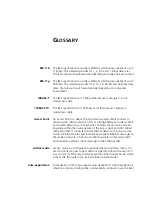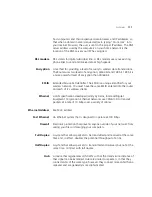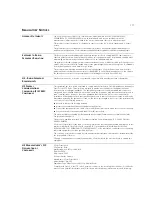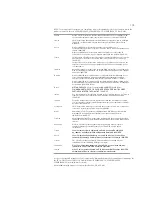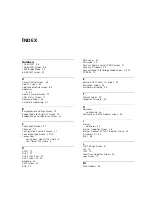
114
G
LOSSARY
Router
A device that acts as a central hub by connecting to each computer's
network interface card and managing the data traffic between the local
network and the Internet.
Server
A computer in a network that is shared by multiple end stations. Servers
provide end stations with access to shared network services such as
computer files and printer queues.
SSID
Service Set Identifier. Some vendors of wireless products use SSID
interchangeably with ESSID.
Subnet Address
An extension of the IP addressing scheme that allows a site to use a single
IP network address for multiple physical networks.
Subnet mask
A subnet mask, which may be a part of the TCP/IP information provided
by your ISP, is a set of four numbers configured like an IP address. It is
used to create IP address numbers used only within a particular network
(as opposed to valid IP address numbers recognized by the Internet,
which must assigned by InterNIC).
Subnets
A network that is a component of a larger network.
Switch
A device that interconnects several LANs to form a single logical LAN that
comprises of several LAN segments. Switches are similar to bridges, in
that they connect LANs of a different type; however they connect more
LANs than a bridge and are generally more sophisticated.
TCP/IP
Transmission Control Protocol/Internet Protocol. This is the name for two
of the most well-known protocols developed for the interconnection of
networks. Originally a UNIX standard, TCP/IP is now supported on almost
all platforms, and is the protocol of the Internet.
TCP relates to the content of the data travelling through a network —
ensuring that the information sent arrives in one piece when it reaches its
destination. IP relates to the address of the end station to which data is
being sent, as well as the address of the destination network.
Traffic
The movement of data packets on a network.










